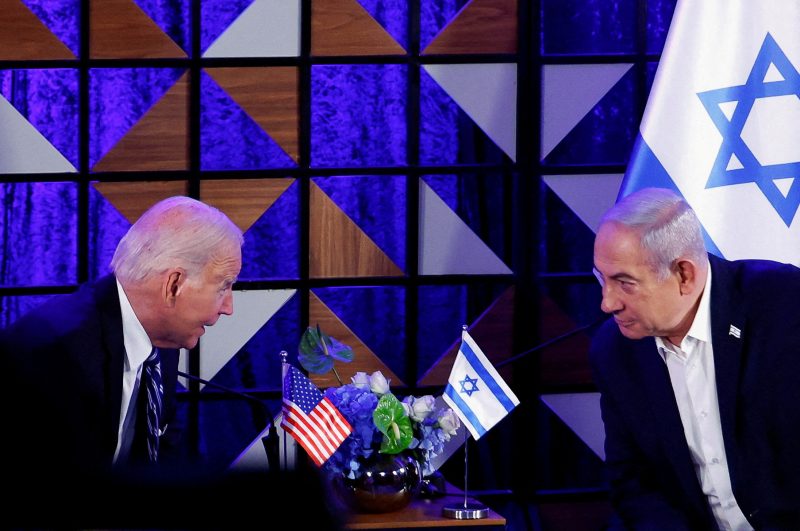In recent years, the political landscape in the United States has been marked by a growing divide between the Democratic and Republican parties. This division has deepened in the aftermath of the Trump presidency, with both sides becoming increasingly entrenched in their respective positions. The ongoing conflict in Gaza has further exacerbated this division, as Democrats grapple with how to respond to the violence and unrest in the region.
The recent escalation of violence in Gaza has presented a significant challenge for Democrats, who find themselves caught between supporting Israel, a long-time ally, and showing solidarity with the Palestinian people. This dilemma has created rifts within the party, with some members advocating for a stronger stance against Israel’s actions, while others emphasize the need to support the country’s right to defend itself.
For many Democrats, the issue of Gaza has become a litmus test for the party’s commitment to human rights and social justice. The sight of Palestinian civilians, including women and children, being killed or displaced by Israeli airstrikes has sparked outrage among progressive lawmakers and activists. Calls for the U.S. government to hold Israel accountable for its actions have grown louder, placing pressure on Democratic leaders to take a more critical stance.
However, the traditionally strong support for Israel within the Democratic Party has made it difficult for some members to openly criticize the country’s actions. Many Democratic lawmakers fear the political repercussions of speaking out against Israel, particularly as the party seeks to maintain its fragile majority in Congress. This has led to a situation where some Democrats are torn between their principles and political expediency.
The situation in Gaza has also exposed divisions within the Democratic Party on the issue of foreign policy. While some Democrats advocate for a more interventionist approach that prioritizes human rights and international law, others argue for a more restrained foreign policy that avoids entanglements in conflicts overseas. This debate reflects a broader struggle within the party over its role in the world and how it should engage with global challenges.
In the midst of these divisions, the Biden administration has sought to strike a delicate balance in its response to the Gaza crisis. President Biden has expressed support for Israel’s right to defend itself while also calling for a ceasefire and raising concerns about civilian casualties. This nuanced approach has drawn criticism from both sides, with some Democrats accusing the administration of not doing enough to address the root causes of the violence.
As the conflict in Gaza continues to unfold, Democrats are facing increasing pressure to take a clear and principled stance on the issue. The party’s response to the crisis will not only shape its relations with Israel and the broader Middle East but also define its commitment to human rights and international law. How Democrats navigate these challenges in the Trump era will be a critical test of their unity and vision for the future.
